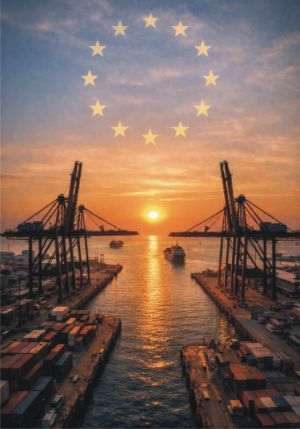The first intermediate results of yesterday"s polls emphasized flagrant contradictions and the horrible political bias of the polling institutes, as well as the fact that such institutes are political instruments of influencing the voters.
At noon, two television channels estimated, based on the polls they had ordered, that Geoana was leading Basescu 36 per cent to 34 per cent (Antena) and that Basescu was leading Geoana 36 per cent to 30 per cent (B1 TV).
Of course, the actual figures were not broadcast, but were circulating among the journalists.
Along with the results of the election, we also learn whether the polling institutes have been consolidated or compromised, after repeated accusations that they are manipulating the figures to serve the interests of their paying customers.
Nevertheless, the consolidation of their professionalism by the results is relative...
These accusations are not exactly news.
Accusations of manipulation were made during almost every election we have had. In 2004 and 2008, in the parliamentary elections, some of the polling institutes were caught on the wrong foot, as their predictions did not match the results of the elections, beyond the technically allowed error margin.
It is quite probably that they had counted on the feedback effect of their predictions - the phenomenon by which a prediction influences behaviour so as behaviour changes in order to fulfil the prediction, although it would not have happened if the prediction had not existed.
In reality, the fact that the results confirm the prediction does not at all guarantee that the prediction was not manipulated, considering that it was made public during the period when voters were forming an opinion of the candidates.
As a matter of fact, the present election campaign started long before the last month. Actually, it goes back years ago, when the television channels of the Intact Group, and then Realitatea TV, decided to make it their goal to destroy the image of President Traian Basescu.
No matter how gross media manipulation may have been all these years, it has managed to create some sort of a "fashion" that it is bad taste to give President Traian Basescu a new term of office.
On top of this state of mind induced through manipulation, they added the opinion polls.
The presidential campaign this year has created the image of a chess game in which the top three candidates in the opinion polls - Traian Basescu, Mircea Geoana and Crin Antonescu - scored points in the voters" preferences thorough political moves that often affected our hopes of bringing the economic crisis to an end.
Playing for dual stakes - the Presidency and the nomination of the Prime Minister - the three of them used the institutional levers and means they had available and the results of such actions were visible in the opinion polls broadcast so far.
I am summarizing therein the main decisions and political moves of the top three presidential candidates during the one-month election campaign (or just before it) and their impact, which has been illustrated in the results released by the polling institutes.
I would like to point out that the fluctuations in the voters" preferences as illustrated in the three charts has been calculated unusually, by cumulating all the results of the opinion polls, irrespective of the fact that the polls were made by different institutes.
Don"t they all claim to be acting in good faith?!
• How The Candidates Won And Lost Votes
Traian Basescu rose in opinion polls after he announced the referendum on reducing the number of Members of Parliament and moving to a unicameral system. The political crisis which political rivals blamed on him as well as the conflicts with the parliamentary parties, except PD-L, regarding the nomination of a Prime Minister capable of securing an appointment in Parliament eroded his popularity among the voters.
•
Mircea Geoana enjoyed a constant rise in opinion polls after PSD withdrew from the ruling coalition. The president of PSD also gained some popularity by supporting the Liberals" political initiatives - the no-confidence motion and the nomination of Klaus Johannis for Prime Minister. Geoana lost popularity through the repeated attacks of his opponents on the lack of solutions to the economic crisis during the nine months of participation in the ruling coalition with the PD-L.
•
Crin Antonescu gained popularity due to the fact that PNL"s no-confidence motion managed to cause the fall of a government for the first time in twenty years, amid the public discontent with the failure of the Boc Government to counter the economic crisis. The president of PNL gained public empathy especially by supporting Klaus Johannis for Prime Minister. Crin Antonescu lost some points because of his controversial support for the appointment of Bogdan Olteanu as Vice Governor of the National Bank and because of attacks focused on his lack of experience in the administration.
























































